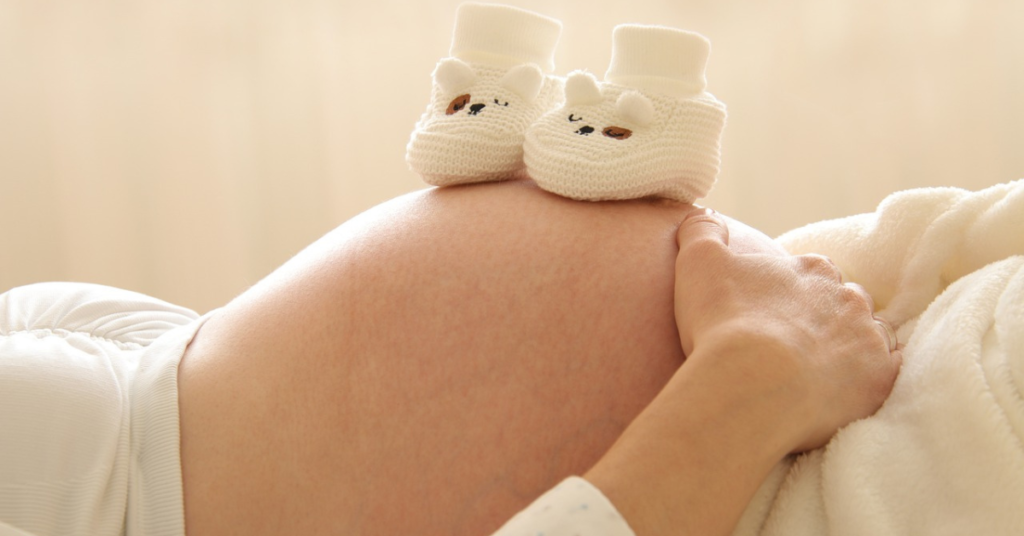It’s thrilling to welcome a new addition to the family, but have you ever wondered whether your unborn child is aware of your pregnancy even before you start to show? While research is still in its infancy, many women have observed behavioral changes in their infants when they get pregnant. Babies may also be sensitive to the physical and emotional changes accompanying pregnancy. The indicators that your baby may be aware of your pregnancy, such as increased clinginess and fussiness, as well as more significant curiosity and affection, will be discussed in this blog post. You can better bond with your expanding family and prepare for your new child’s birth by being aware of how your baby might react to your pregnancy.
Contents
1. Understanding Baby’s Reactions

Infants are perceptive of their surroundings and may pick up on even the most minute hints. Babies can tell that something is different by listening to changes in vocal tone and hormone levels. As a result, while you are pregnant, you can notice that your baby is more alert and sensitive to you. Babies may express their awareness of your pregnancy in a variety of ways. When you speak to them, they might, for instance, become more noisy or more eager to be held. Some infants may even develop jealousy or possessive behaviors toward their mother and become protective of her. Overall, it is evident that newborns can detect changes in their mother’s body and respond by acting differently. Therefore, if you’re expecting, keep a close eye on your baby’s behavior to see if you detect any changes that could mean they’re aware you’re expecting.
Additionally, infants who perceive and comprehend the impending arrival of a new sibling may exhibit increased levels of clinginess or irritability. This could be because they are preparing for a significant change in their family dynamic and are doing so by making adjustments. As your baby processes the pregnancy’s emotions, being gentle with them during this time is crucial.
2. Signs of Recognizing the Pregnancy

Babies could grow more physically needy and cling to their mothers throughout pregnancy, and they frequently do this due to their ability to detect changes. Babies are remarkably alert and can notice changes in their surroundings, including those in the individuals nearby. According to research, babies can detect small indications that a person is pregnant, such as changes in body odor or hormone levels. As babies are very aware of their caregivers’ emotional states, they may also respond to changes in the pregnant person’s mood or conduct. Although every infant is unique, it is normal for babies to show behavioral changes when they know that a close relative or friend is expecting.
Babies may focus more on the pregnant woman’s stomach and even attempt to touch or point at it. Babies frequently sense pregnancy before it is obvious and respond in various ways. Some infants exhibit increased clinginess or fussiness, while others may show interest in the expanding belly. Babies might also feel hormonal changes during pregnancy. Expectant mothers may discover that their child is becoming more observant or attentive to them. These behavioral indicators show that the baby is aware of what is happening and that it is fresh and exciting. However, not every infant may exhibit a specific behavior toward pregnancy, and it’s essential to remember that every baby is different.
Furthermore, newborns could start acting differently toward someone once they sense that they are pregnant, which can be increased fussiness, agitation, misbehavior, or excessive clinging. When a person in the household is pregnant, adults must pay close attention to how their baby is doing so that they may see any behavioral changes before they become too challenging to handle.
3. Changes in Behavior to Note

When babies recognize that their mother is pregnant, they may approach her more tenderly. Babies can sense changes in their mother’s body even before birth, which is fantastic. They frequently display heightened awareness and may behave more sympathetically toward their mother. This is so they can detect changes in the mother’s behavior and hormonal levels. Babies may experience the changes in their mother’s body even though they may not fully grasp what is occurring, which helps strengthen the link between them both.
In conclusion, even before the pregnancy-related changes become apparent, infants may notice their primary attachment figure is pregnant. This could show up behaviorally as clinginess, sobbing, or possessive behavior. In addition, newborns may exhibit envy or perplexity due to the significant attachment figure’s daily routine changes.
4. Social and Cognitive Developments in Babies
Babies can detect alterations in their surroundings and individuals’ conduct. Your infant could detect changes in your behavior and physique if you are pregnant. Some newborns become more needy and clinging when their mothers are pregnant, while others become more independent. Babies are sensitive to changes in breathing patterns, hormone shifts, and higher heart rates. Some infants may even respond when they hear their unborn child’s heartbeat in the womb; you can see this if they put their ear to your abdomen or bend in close to listen. It’s incredible how infants can perceive environmental changes even before birth.
They can distinguish between familiar and unknown voices and react differently to each. Babies have a remarkable capacity for seeing and responding to their surroundings. There is no question that babies may sense physical changes in their mother’s body during pregnancy. When their mother is pregnant, they may occasionally display specific behaviors, such as becoming clinging or fussy. Additionally, when among other pregnant women, babies may exhibit eagerness. Babies are susceptible to changes in the people and environment around them, even if more research is needed to understand how they respond when their mother is pregnant.
In the meantime, when a new sibling is on the way, babies might know early about the concept of competition for attention. To maintain their status within the family, this can appear as increasing clinginess or jealousy. Nevertheless, they will likely be as eager to meet their new sibling as everybody else.
5. Strategies to Engage with Your Baby During Pregnancy
Singing and talking to your unborn child is a good idea because babies can hear sounds as early as 14 weeks into pregnancy. After birth, your baby may learn to identify your voice if you talk or sing to them. The behavior of your unborn child may vary as your pregnancy goes on. You may have read or heard tales about infants who can detect their mother’s pregnancy. Some women firmly believe their newborns behave differently while expecting another baby, despite the lack of scientific evidence supporting this idea. Changes in sleep patterns, increased clinginess, and heightened awareness of the mother’s touch and movement are some of the most typical changes. It is difficult to generalize how babies behave when they know you are pregnant because every child is unique.
In conclusion, research indicates that kids may identify their moms while they are pregnant and may even be able to determine when a woman is expecting. Evidence shows that regular belly rubs during pregnancy help calm newborns and foster a favorable environment for average fetal growth. Massages positively affect the mother and the unborn child, promoting a healthy lifestyle before giving birth by calming and relaxing the body.
6. Preparing for the Baby’s Arrival
Babies can perceive changes in their surroundings, such as the presence of a developing child inside their mother. Even if they are too little to speak, they will still find a way to express their feelings about the situation. Most of the time, newborns can detect changes in their mother’s hormone levels. They’ll also observe her changing posture and expanding abdomen, among other bodily changes. Some infants cling to their mothers more intensely than previously.
Additionally, they can act angrier or moodier than usual. When strangers get close to their mother’s bellies, some newborns may grow more territorial or hostile. Overall, each baby’s response to pregnancy is distinct and may differ from another baby’s.
Making a safe and pleasant atmosphere, obtaining the essential items, and caring for the mother’s and baby’s health are all possible aspects of getting ready for a new baby. If you already have children and are expecting another, your older child can show signs of pregnancy that you wouldn’t anticipate. Young children sometimes struggle to find the right words to describe their emotions. However, they often do great at picking up on their parents’ moods and actions. Your child might notice any physical changes in you, such as a decrease in the amount of time you spend raising them or an increase in your level of fatigue. They might also notice home alterations, such as seeing the midwife or OB, putting up a nursery, or purchasing baby items. They may even begin to exhibit more behaviors and responses in response to the impending birth of the child as the pregnancy continues. To ensure a seamless transition when the baby is born and to help your child understand what is going on, it is essential to check in with them if you notice any significant changes in their behavior throughout pregnancy.
Like adults, infants exhibit many emotions when they learn that a new sibling is coming. While some people would shriek with delight in anticipation and excitement, others could feel more uneasy or uncertain about the impending changes. Regardless of the response, expecting parents may find it advantageous to openly discuss what to expect with their young children to make them feel included during this particular time.





